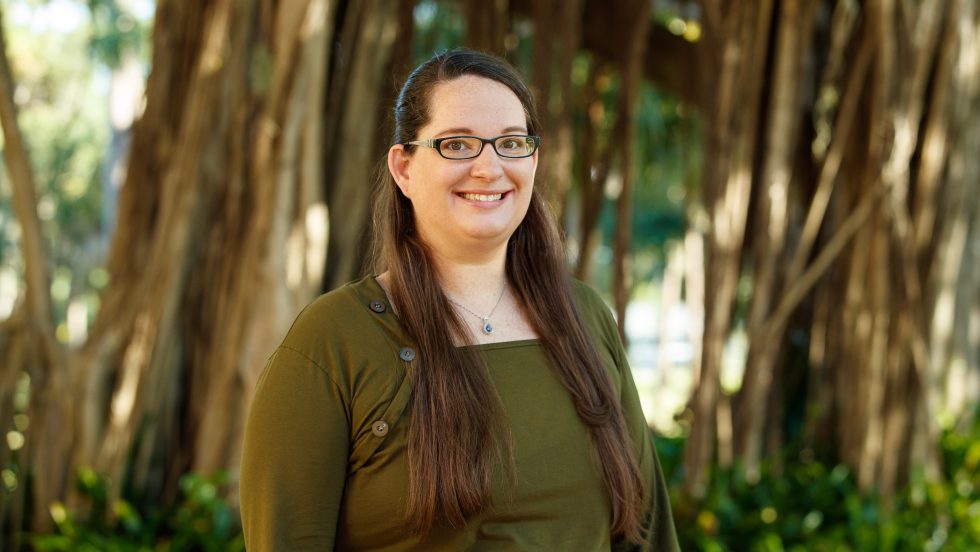New College of Florida Student-Led Paper on American Alligators Published in “Journal of Zoological and Botanical Gardens”

Written by students Zane Cullinane Walsh (first author, project conceptualizer), Hannah Olson and Miranda Clendening; and co-authored by New College Assistant Professor of Biology and Marine Science Athena Rycyk, Ph.D., the paper is entitled Social Behavior Deficiencies in Captive American Alligators (Alligator mississippiensis). Through behavioral findings, the paper paints a thorough picture of alligator welfare in captivity—information that is ultimately valuable to conservation efforts.
“I commend Zane, Hannah and Miranda for their diligence, and hope their accomplishment with this paper inspires other students,” Rycyk said.
The research began as an Independent Study Project called “Observing Social Interactions Within Captive and Wild Alligator Congregations,” during which students conducted research at Myakka River State Park and Croc Encounters. Before collecting data, the students worked to secure approval from the Institutional Animal Care and Use Committee.
Rycyk spent a year working with her students to write and submit the paper, which was included in the journal’s special issue, Special Issue Fundamental Knowledge on Forgotten Species: An Exploration of Data from Rarely Studied Captive Animals. The piece was even selected by the editors to be a “featured paper.”
For Clendening, a third-year biopsychology student, publishing her first paper as an undergraduate is a significant milestone—one that will help her study animal behavior as a career.
“Getting to see the whole process through—from fleshing out the idea to collecting data to analyzing to writing and rewriting and editing—was just incredible,” Clendening said. “This project was hugely informative regarding the experimental and analytical methods involved in that. I am so, so grateful to Zane and Hannah for bringing me on board with this, and to Dr. Rycyk for helping us out every step of the way.”
Walsh felt similarly.
“This experience was extremely rewarding, as this paper filled a large and noticeable gap in alligator behavioral research that will hopefully have significant applications in captive alligator welfare,” said Walsh, a third-year environmental studies and biology student who plans to study herpetology as a career. “American alligators are incredible animals, and I hope that each research gap identified and filled in the study of this species will go towards their conservation, welfare and our overall scientific understanding of them.”
The study, in short, revealed that captive alligators display fewer social behaviors than wild alligators. The researchers determined that these differences may occur because of a range of factors, such as differences in stocking density, enclosure structure and size, human proximity and variation in human behavior, and behavioral variation in individual alligators.
“Crocodilian behavior in captivity is understudied. We know that, in the wild, they are social animals, but captivity can alter behavior,” Rycyk said. “We found striking differences between the social behavior of wild and captive alligators.”
Wild alligators commonly use posturing, movements and vocalizations to communicate with one another. For example, a wild alligator might growl to mitigate conflict or perform a head slap to establish its presence. Rycyk and her students found that wild alligators perform social behaviors, on average, 827 percent more frequently than their captive counterparts. The diversity in social behaviors performed was also diminished in the captive congregation.
“Identifying indicators of compromised wellbeing is important for developing strategies to improve welfare such as environmental enrichment, changes in habitat structure, and encouraging natural behaviors,” Rycyk said. “But translating data into a publication-quality manuscript is challenging and time-consuming. After the students collected data, they worked to review the literature, learn new statistical and data visualization techniques, and develop their scientific writing skills. I’m very proud of the hard work everyone put in.”
Abby Weingarten is the senior editor in the Office of Communications & Marketing.
